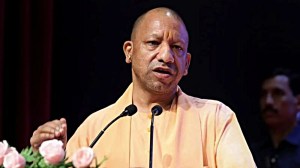Meanwhile, Centre for super body to check UGC, keep tab on states
In the name of promotion and coordination of higher education in the country, the Centre plans to clip the wings of the University Grants Co...

In the name of promotion and coordination of higher education in the country, the Centre plans to clip the wings of the University Grants Commission (UGC) and enter an area which is essentially the domain of the states.
A bill has been drafted by the Ministry for Human Resource Development that proposes a National Higher Education Commission, a super body headed by none other than the HRD minister, to ‘‘coordinate the development and planning of higher education, including research’’.
Though the second reason for forming the commission is to resolve disputes between universities and the professional councils concerned such as Medical Council of India and Bar Council of India, its functions have been enlarged to limit the UGC’s authority and keep a tab on state universities.
The 30-member commission would have the power to inquire into the financial needs of the universities, and advise the Central and state government ‘‘on the allocation of any grant to universities for any general or specific purpose out of the consolidated fund’’ of India or the state.Currently, development and maintenance expenditure of Central universities is met by the Centre through the UGC while states fund their universities and administer them.
The draft bill also provides the commission the power to recommend to ‘‘any university’’ the necessary measures for improving its education and the steps that would be required for implementing these recommendation.
It would also have the right to ask any university to furnish information on its financial position or the courses it provides, along with the rules and regulation relating to the standards of teaching and examination.
Using its funds, the commission could establish and maintain institutions for providing common facilities, services and programmes for a group of universities.
In line with the recommendations of the Central Advisory Board of Education, the bill empowers the panel to determine and maintain standards in teaching, examination and research in courses which do not have a regulating council or in new and emerging professional courses that do not have regulations as well.
To accommodate these powers, the bill proposes a standing commission with a chairman who would ‘‘hold office for a term of five years or ceases to be the minister for HRD, whichever is earlier’’. It would have a vice-chairman and two secretaries of the Central government with membership to chairpersons of the seven councils like Medical Council of India, three professionals or industrialists, five educationists and 10 bureaucrats from different Central government departments.
The commission would be answerable to Parliament through an annual report that would highlight the status of higher education. It would have to furnish the measures it took for promoting higher education in the country, specially state education.
Photos


- 01
- 02
- 03
- 04
- 05





























